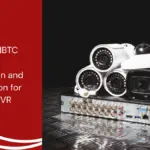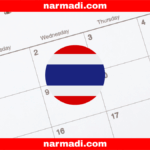Since 2008. We born to serve you for obtaining type approval certification of Radio (RF) / wireless and telecom products in Thailand.
NBTC stands for “National Broadcasting and Telecommunications Commission”, a government-owned regulatory body in Thailand that’s responsible for setting up the regulation and policies regarding Information and Communication Technology. One notable event that has been handled by NBTC such as the restructuration of 3G, 4G, and 5G frequency bands as well as doing the frequency auction. Besides, NBTC also plays a role in licensing ICT products that will be sold or used in Thailand.
Securing NBTC certification can be difficult. Although it accepts foreign test reports based on international standards such as CE or FCC, there are situations where the NBTC mandates additional local testing, especially if the foreign reports don’t meet their specific requirements. With deep expertise, extensive experience, and global connections in the certification industry, Dimulti Indonesia is fully prepared to help you navigate the challenges of the certification process, remove any hurdles, and ensure you obtain the certificate by your target date.
Thailand NBTC Certification Process
The Thailand NBTC certification does not command local testing for product approval. As a result, certification can be obtained through a documentation-based handle, which includes assessing existing RF (Radio Frequency) and EMC (Electromagnetic Compatibility) reports, and other relevant test reports such as safety, EMF, and SAR test reports.
The NBTC permits the acknowledgment of universally recognized guidelines, such as CE certification, to fulfill the essential necessities for approval. This streamlined handle gives adaptability for companies looking to enter the Singapore market without the requirement for extra local testing.
The Types of NBTC Certification
The certificate itself is divided into three types, according to the kind of the product and its usage. These types are:
- Class A or registration: For products that fall under this category, it must pass through a testing process in the testing lab designated by NBTC. Besides, applicants need to provide data requested by NBTC to obtain a login account and certificate.
- Class B (Approval Certification): This is similar to Class A Approval. However, in the approval process it can use foreign test reports such as CE or FCC. In this process, applicants also need to provide data requested by NBTC to obtain login information into an account and certificate.
- Supplier Declaration of Conformity (SDoC): This is applied to radio products with features such as Bluetooth, WIFI, RFID, and SRD. SDoC is usually not mandatory, so applicants apply for it voluntarily.
NBTC SDoC Certificate Example
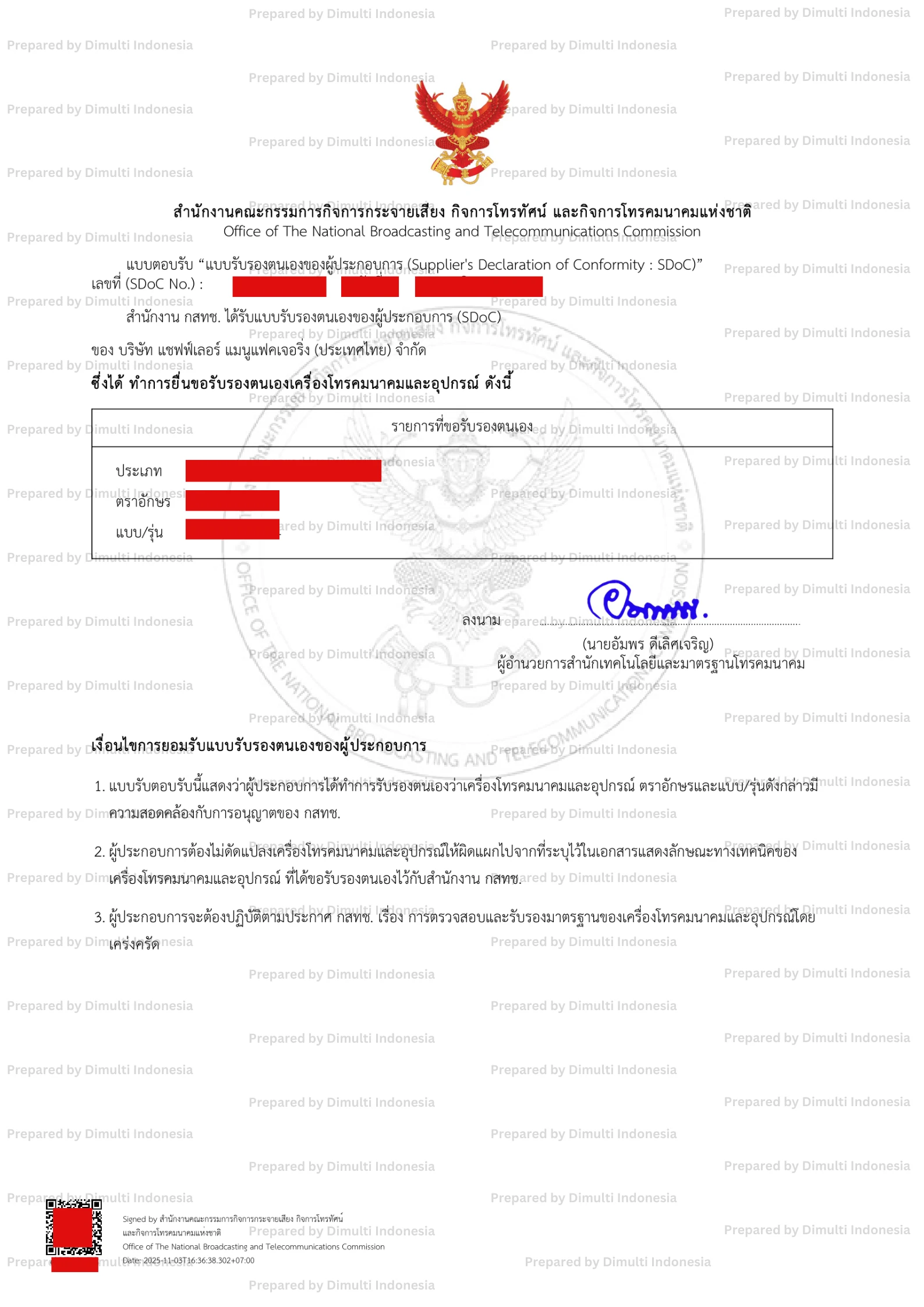
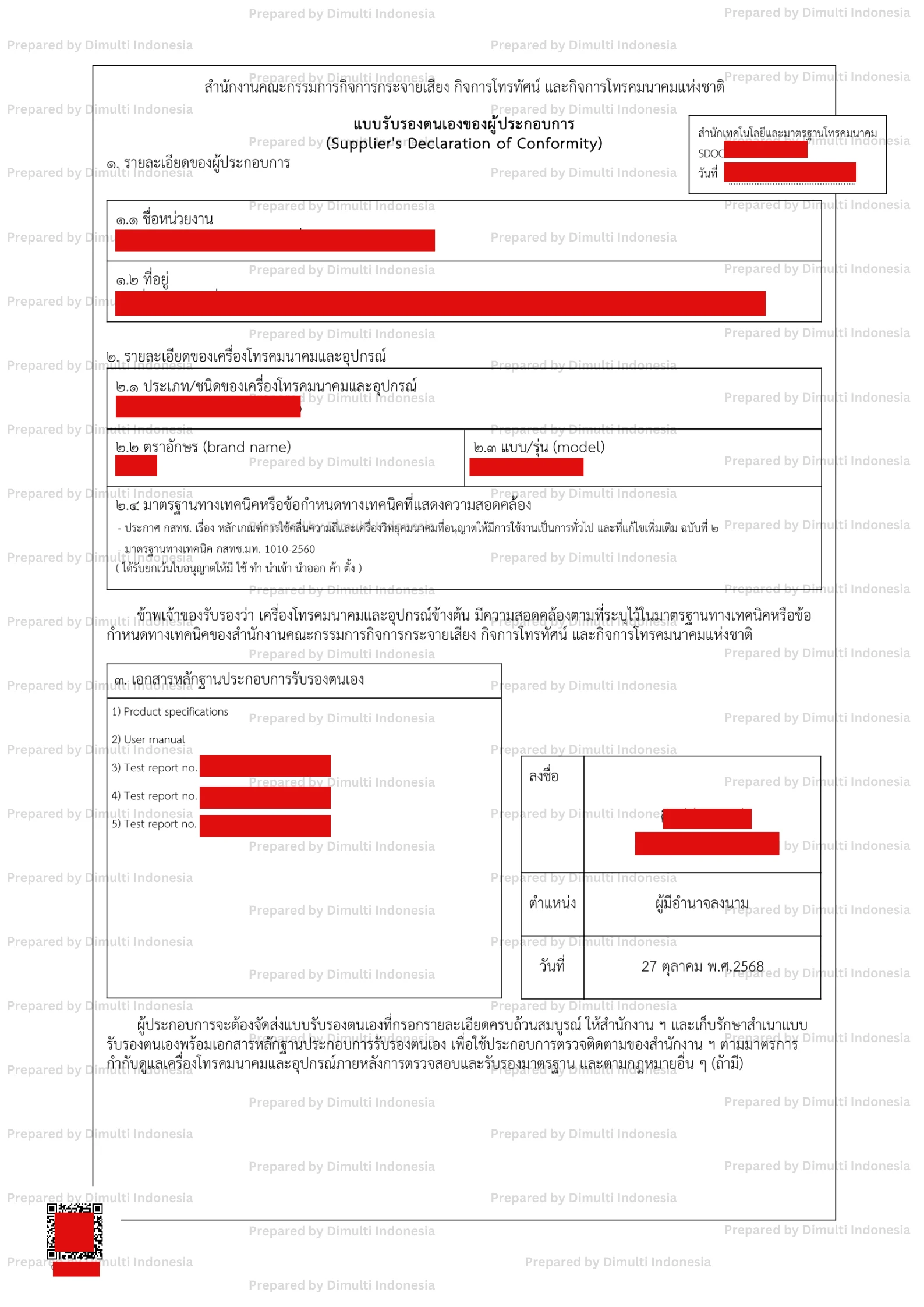
NBTC SDoC Certificate Example – Page 2
Lead time, and validity
- Lead time: Based on official lead time specified in the NBTC circular, which is 4-8 weeks after sample receipt.
- Validity: NBTC certificate no validity time. It means that the certificate will be valid forever unless the product gets any modifications / changes.
NBTC Label Requirements
Once the product obtains an NBTC certificate, a conformity mark must be applied. The rules of applying this conformity mark are:
- Class A equipment
For class A equipment, here is the conformity mark format:
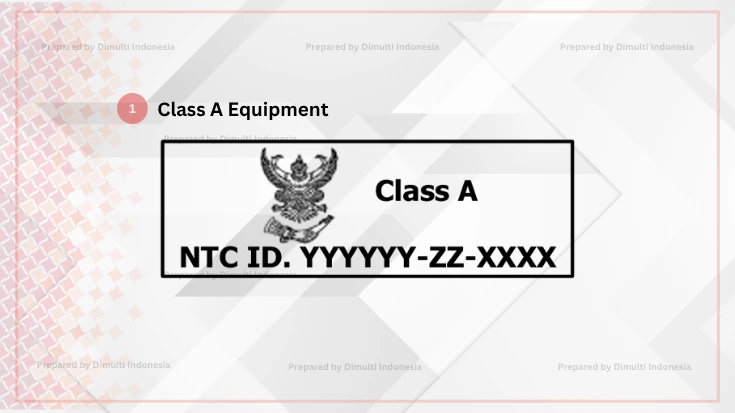
Where YYYYYY is registration number (6 digits), ZZ is the year of registration (last 2 digits of the year), and XXXX is supplier code (4 digits)
- Class B Equipment
For class B equipment, here is the conformity mark format:
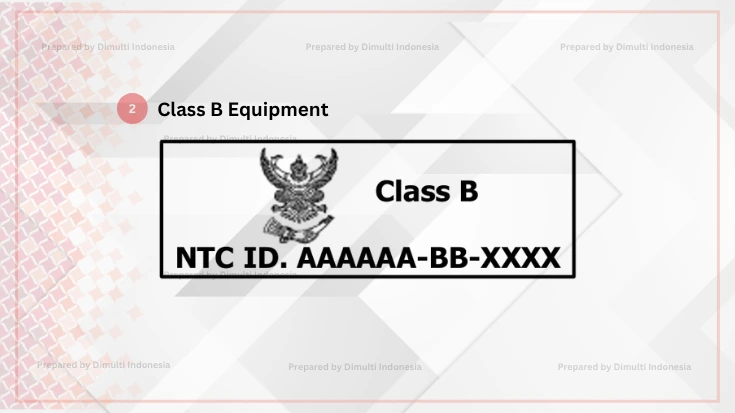
Where YYYYYY is registration number (6 digits), ZZ is the year of registration (last 2 digits of the year), and XXXX is supplier code (4 digits)
Both class A and class B labels must be affixed on the surface of the product, in the place that can be found easily and visible. Labels must be affixed using a method that is reliable and can not easily be removed.
If the label can not be affixed to the product due to a certain reason, for example is because the product size is too small, it is allowed to affix the label on the packaging, or any material that comes with the product such as user manual or compliance sheet.
- SDoC product
For the case of SDoC, supplier is also mandatory to affix labels stating that the product has complied with certain Thai standards. The wording can follow the following format:
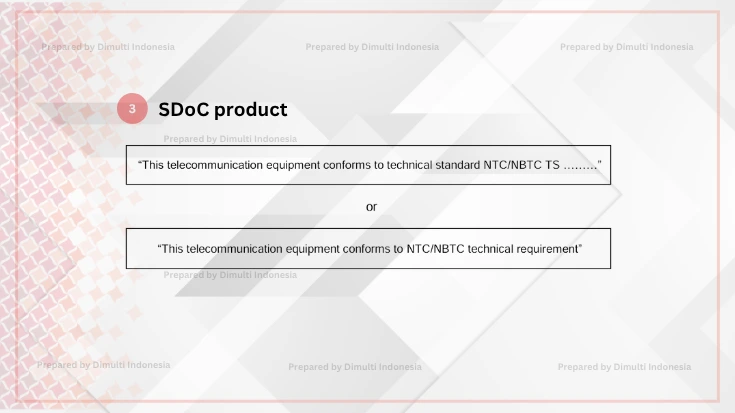
This statement must be affixed on the user manual, or any other supplementary documents that comes with the product such as specification sheet or compliance sheet of the product.
NBTC Product Scope
NBTC certification is not limited to telecommunication product only. But this certification is also mandatory to all products that have telecommunication features or radio frequency. Some examples of products that are mandatory to apply NBTC certification are:
| Home Appliances: Smart Dishwasher Smart Oven Smart Washing Machine Smart Refrigerator Smart Air Conditioner Smart Wine Chiller Smart Coffee maker Smart Fan Electronic Water Meter Sensor Smart Lighting system Smart water closet Robot vacuum cleaner Smart locker Etc. | Automotive: Tire Pressure Monitoring Sensor Head Unit/Car Audio Telematic Unit Body Control Module Immobilizer Keyless Wireless Charing Unit Vehicle Radar Dashboard Camera Seat-belt Sensor Door-Lock Sensor Vehicle Dashcam Etc. |
| Audio-Video Devices: Wireless Speaker Smart Television or Digital Television Monitor Wireless Microphone Microphone Receiver In-ear monitoring device Headset/headphone True Wireless Earbud Projector Speakerphone Etc. | Telecommunication Products: Smartphone Line/wired telephone Tablet PC Handy Talkie/Walkie Talkie Switch Router Access Point Video Conference Cordless telephone IP Phone Etc. |
| Medical and Healthcare products: Blood Glucose Monitoring system Blood pressure monitoring system MRI system Smart Operating Table Digital Radiography Smart syringe pump Body Height measurement Body weight measurement Bluetooth Oximeter Etc. | Wearable: Smartwatch Smart Ring Smart tag Running shoes tracker Smart eyeglasses Etc. |
| Environmental Monitoring Product: Wildfire Sensor Whether Sensor Etc. | Mining: Smart detonator system Tunnel light signal Etc. |
NBTC Type Approval Services
To access the Thailand market for trading ICT products, manufacturers must comply with the compliance instruments. Dimulti, as a product compliance specialist, is ready to provide consultation and certification management services for telecommunications equipment to obtain the NBTC certification. Not only in Thailand, but we also offer certification services in ASEAN and global markets.
In addition to providing certification services, we also conduct research on regulations that are constantly evolving in response to rapid technological advancement. This ensures that delays will not hamper manufacturers from adopting the necessary regulatory frameworks. Our international research services will help manufacturers stay informed about the latest and upcoming regulations relevant to their target markets.
Our elegant Type Approval and Certification Management services are the key to accelerating the entry of RF products (Wireless, Bluetooth, RFID, etc.) into the international market. We not only ensure legal compliance and avoid customs detention, but also offer an efficient management system to manage each certificate transparently and under control.
Contact Us!
NBTC News and Updates
Regulatory Updates
Load More >>Thailand Regulatory News and Updates
FAQ – Thailand Type Approval
What are the document requirements to obtain NBTC Type Approval?
To apply for NBTC approval, the common documents required are Application form (usually the agency will provide the draft), specification sheets, product photos, RF test report, EMC test report, and other relevant test reports such as safety, EMF, and SAR test reports.
Who should be Applicant on Thailand Approval Certification, manufacturer or Importer?
Regarding the applicant, NBTC allows local representation service, or using the Thai agency name as the certificate holder. However, it is preferable to appoint a real importer to be the certificate holder, so the importer can use the certificate for actual sale and import activities.
Is testing on NBTC Certification Mandatory?
Product testing on the Thailand NBTC is mandatory by the report from international labs accredited to ISO/IEC 17025, because NBTC doesn’t have local test reports.
What are the sample requirements?
It does not need a sample (SDoC, Class A, or Class B).
How to get Type Approval certificate with Paperwork?
For Thailand NBTC certification can be processed through the paperwork method by evaluating the existing CE, FCC, CB, and more.
How long is the lead time of Thailand NBTC Type Approval and Certification?
The lead time is 4-8 weeks.
How long is the validity of Thailand NBTC Certificate?
NBTC certificate no validity time.
What are the requirements of NBTC Certification Label?
Once the product has obtained NBTC certification, the conformity mark must be applied. Class A and Class B labels must be affixed to the surface of the product in a place that is easy to find, visible, and cannot be easily removed.
For SDoC, it is also mandatory to affix a label stating that the product complies with certain Thai standards.
Why choose us!
Here are some strong reasons why you should choose us as your business partner.


